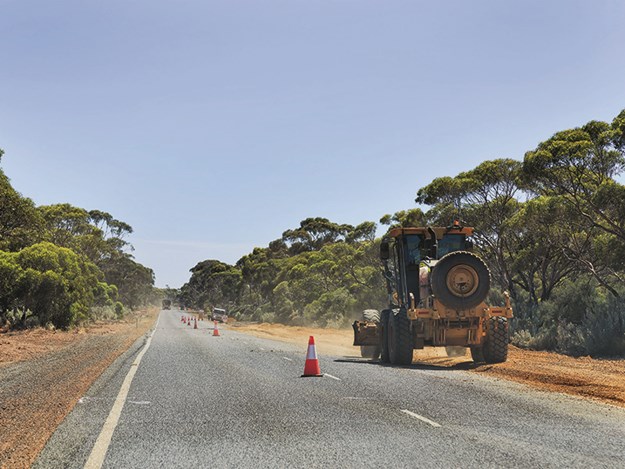Opinion: We can’t afford not to fully tax fuel when the money is needed to upgrade regional and rural roads, says WAFarmers CEO Trevor Whittington
It’s not often I argue for a tax to remain, or even to increase, but the recent announcement in the federal budget to cut the fuel excise tax in half to 22c for six months is not a smart decision.
There is a good argument to be made that the government should have ignored the pressure to cut fuel excise to help reduce the cost of living.
We have seen this movie before, where the nightly news runs images of bombs and bullets flying and the cost of fuel jumping, with the media demanding a cut in fuel taxes.
More often than not, the government of the day ignores the media barrage and holds the line, knowing that within 12 months the fuel price will drop as the system comes back into balance.
However, this time round, the government does not have the time to wait with the next election just weeks away in May.
Reducing fuel excise to buy some love from the electorate is the easiest thing in the world when fuel prices are high. But there is always a day of reckoning when the time comes to reinstate the full tax to catch up on funding to fix the roads.
 |
|
Cuts to fuel tax means less revenue for upgrading regional and rural roads
|
Putting up excise rates is a hard political sell – just ask Tony Abbott. It was Abbott and Joe Hockey in their infamous 2014 budget who sought to reinstate the indexation of fuel excise that was frozen by John Howard and Peter Costello back in 2001, after the price of fuel spiked past $1 a litre just months out from the election.
Over a decade later, and after years of cuts to annual road funding, the federal government was forced to make the announcement that fuel would go up a few cents a litre to fund more road works.
Predictably we saw a hysterical media reaction whipped along by the Greens and Labor, who railed against the “cruel tax hike on motorists”, labelling the government “bowser bandits”. This is the same mob that claimed Abbott was a carbon denier and should have been doing more to reduce Australia’s carbon emissions.
But, of course, in the climate change debates Labor has never been brave enough to put up a policy to tax fuel guzzlers off the roads as that would have been a direct attack on its base.
But Labor does like its taxes. In a fit of hypocrisy when it sniffed a possible victory at the 2016 election, it let the excise rate increase slip through parliament, figuring it was better to let the coalition wear the hard decision than do it itself later on when in power.
Such logic probably crossed the minds of Morrison and Frydenberg – if they assume Labor will win, then why not leave the cut open-ended instead of setting an expiry date of September 28, leaving Labor with fewer funds to spend and the unpleasant task of having to reintroduce it later.
Mind you, in such a scenario, Labor, now dominated by the left faction, is unlikely to have the financial hard-headiness of Abbott and Hockey to balance the books. So, like last time, it might be left until the coalition returns to power to reinstate any reduction, assuming it loses the election.
But there is a problem with this, as state governments depend on that excise to fund big road projects. In 2022–23, the federal fuel excise component is forecast to net over $11 billion after rebates, with most of it being allocated to land trans- port infrastructure projects.
While the government tells us it is not cutting road tax, the loss of $3 billion out of the budget has to made up somewhere or put on the credit card.
My argument is that any cut to the federal excise means something gets cut to buy votes. We pay road excise for a reason and it becomes a slippery road if governments cut future revenue.
If Labor wins, and wins big in the city, when it come to rolling out its mini budget in six months time and the price of fuel is still up around $2, will it leave the 22c cut in place and cut regional road funding? If it does, I will blame the coalition as it will have made it easy for Labor to subsidise the city at the expense of regional road safety.
The brutal fact is fuel taxes are a necessary evil and should not be slashed to ease the cost of living, because the money they raise is desperately needed to fix rural and regional roads that have not kept up with the size of trucks and the growth of the agricultural and mining industry.

